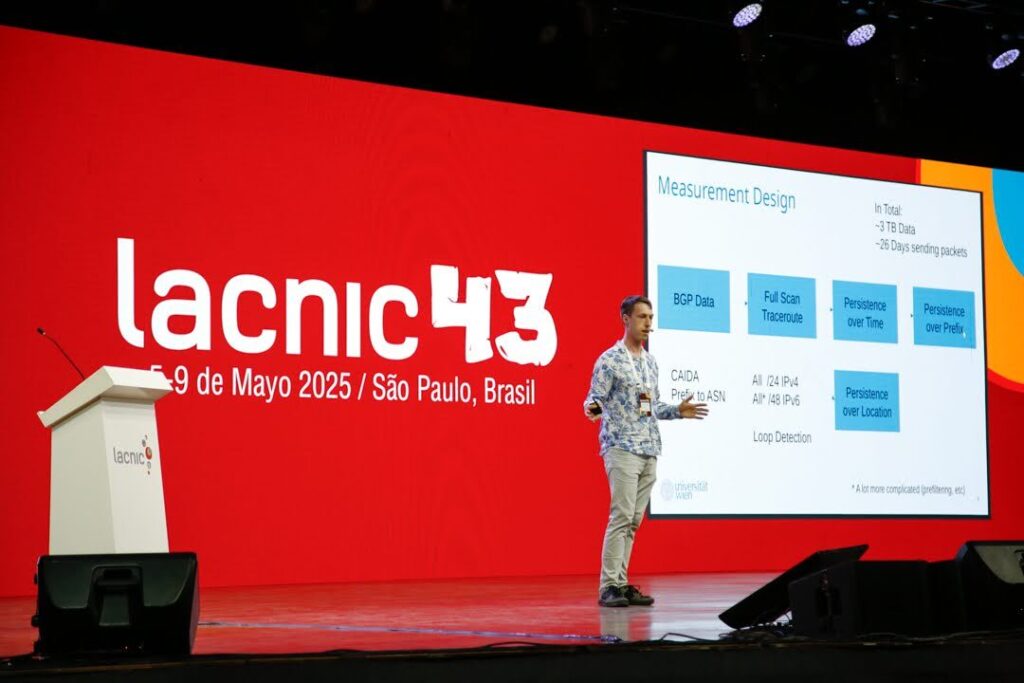Markus Mayer @ LACNIC43
Our colleague Markus Maier, Researcher at SBA Research and University of Vienna Research Group Security and Privacy, gave a talk on “In the Loop: An overview of Persistent Routing Loops on the IPv6 (and IPv4) internet” at the LACNIC43 conference in Sao Paulo, Brasil.


© LACNIC
Abstract
Routing loops forward packets over the same set of routers again and again. The packets, if caught in such a loop, do not only miss the intended destinations, but might also congest links between or even overload involved routers and render additional destinations whose (non-looping) paths include these routers unreachable. Given their potential impact on performance and availability, the situation of long-lasting (persistent) routing loops in today’s Internet is unknown. Comprehensive measurement studies of this phenomenon (in the IPv4 Internet) date back to 2005; studies considering the successor protocol IPv6 – already accounting for more than one third of the Internet’s total traffic – are lacking.
In this paper, we conduct a comprehensive measurement study to determine the status quo of persistent routing loops in today’s Internet — the first-ever considering IPv6, and the first for IPv4 since 2005. We carefully extended the methodology from 2005, including multiple successive measurements, and adapted it for IPv6. Our results reveal that routing loops are still a matter of concern: in total, we found 23,208 persistent loops in IPv4 and 30,090 in IPv6, rendering 0.91% (IPv4), resp. 2.20% (IPv6), of the current Internet – as announced in BGP – unreachable. Another 7.18% (IPv4), resp. 23.00% (IPv6), are at risk to become unreachable in presence of an attack, yielding an overall higher threat potential for the IPv6 protocol. In comparison to the 2005 study, the situation has become more complex: As a consequence of IPv4 address scarcity, the number of ex ante unreachable addresses has decreased by 19.81% (despite the fact that the number of BGP announced addresses has more than doubled); at the same time, the number of addresses endangered by persistent routing loops has sharply increased (+1,907.58%) due to individual routers serving more addresses.
Markus Maier is a second year PhD student at the University of Vienna, Research Group Security and Privacy, and SBA Research. His current research focuses on network security and the underlying infrastructure of modern networks. He conducts large scale measurements in both the IPv4 and IPv6 internet to investigate anomalies, such as his current work on Routing Loops. Further, he is the main maintainer of the Austrian Internet Measurements Platform.
About the Conference
LACNIC43 was this years meeting of Network Operators, CDNs and other important players within the internet ecosystem. LACNIC is the organization responsible for assigning and managing Internet number resources (IPv4, IPv6), Autonomous System Numbers, and Reverse Resolution in the Latin American and Caribbean Region. They promote, help and create spaces for the community to exchange ideas, like this years LACNIC43 event.